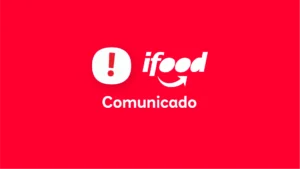During the Covid-19 pandemic, delivery became a habit for many Brazilians. In 2021, 78% of people who made at least one online purchase ordered food at home, according to a search carried out by Edelman at the request of PayPal.
Quarantine gave a boost to this new behavior. In March 2020, around 40% of those interviewed ordered delivery on a daily basis; throughout the pandemic, this percentage jumped to 66%.
Delivery apps were the main channel for purchasing and paying for these meals (93.7%). Next came purchases made on the restaurants' social networks, websites or WhatsApp (52%) and on the apps (41.1%) of these establishments.
This new habit, it seems, is here to stay: nine out of ten respondents to the study said they will continue ordering food at home even after the pandemic passes.
“During the pandemic, people discovered the new experience of enjoying restaurant food at home. This habit did not cease to exist when isolation restrictions were relaxed. This indicates a behavior that is here to stay”, says Arnaldo Bertolaccini, director of Restaurant Experience at iFood. “For this reason, today it is very difficult to imagine a food company that does not explore delivery.”
According to the survey, the majority (93.5%) of people approve of the experience of buying and paying for food online, and 73% said they preferred to buy and pay for meals via the app rather than going to physical establishments.
The main motivation for opting for food delivery was saving time, highlighted by 84% of those interviewed — and 50.8% said that this way they satisfied the desire to feel in a restaurant during quarantine.
Concern for sustainability and safety
The research also reveals other aspects of consumer behavior. The majority of respondents (76.9%) said they order food for delivery on weekends. And 87.2% said that using the app to order food helps with controlling expenses.
Among delivery fans, two concerns predominate. One of them is the environmental impact of the service: 78% said they were concerned about the waste generated by disposable packaging. iFood is keeping an eye on this issue and has the goal of ending plastic pollution by 2025.
Furthermore, consumers can request, through the app, that the restaurant does not send disposable cutlery. That way, 80 million plastic cutlery are no longer shipped for those who ordered food on iFood.
The security of online payments was another concern reported by 68.6% of respondents. To provide more security to transactions and ensure customers’ right to the privacy of their data, iFood does not store credit card data, carries out periodic security tests and adopts measures to prevent access, deletion or inappropriate or illicit use of user data.
Know more:
-
Does acai berry melt? Uncover this and 5 other myths about delivery
Going for a snack? Research shows changing delivery habits
How are drones used in iFood delivery?


